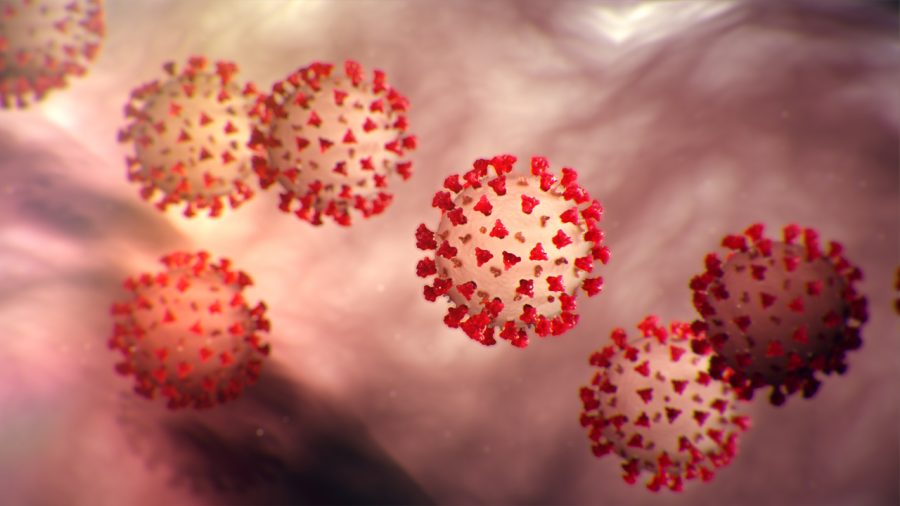New COVID-19 variant strikes Africa, US
The CDC states that the Delta Variant is twice as contagious as previous variants, including the Omicron Variant.
Seeming endless, COVID-19 is still mutating and creating new variants, 22 months after the first recorded case in the United States. The newest on this list is the Omicron variant. Omicron was first detected in South Africa on Nov. 11, but wasn’t reported to the World Health Organization until Nov. 24. The United States has already seen cases in 25 different states since the first confirmed Omicron case on Nov. 29.
Variants occur when a virus mutates. A virus can mutate or change when it copies itself and makes a copying error. When viruses infect a host, they attach to their cells. Once attached, they make copies of their RNA to help them spread. Once a random mistake or change occurs, it can start the spread of a variant. Despite some concerns and uproar about the new variants, there is not much information to prove that it is more likely to cause severe illness. The main difference as of now is that the Centers for Disease Control and Prevention (CDC) believes that it will spread more easily than the original COVID-19.
The CDC still claims that the vaccine and masks are the best tools to fight all forms and variants of COVID-19, and that anyone five years of age or older should get the vaccine and anyone over the age of 18 should get a booster shot at least two months after their initial J&J or Janssen vaccine. Or they recommend getting a booster shot six months after completing their vaccination series of Pfizer-BioNTech or Moderna. The CDC ranks variants based on the level of concern that they cause. There are four rankings of variants: Variants being monitored (VBM), Variant of interest (VOI), Variant of Concern (VOC) and Variant of high consequence (VOHC).
There are currently no COVID-19 variants ranked at the VOHC level, but the Omicron Virus is being ranked by the CDC as a Variant of concern. In order to be ranked as a VOC by the CDC, the variant must “increase in transmissibility or increase in virulence or change in clinical disease presentation; decrease ineffectiveness of public health and social measures or available diagnostics, vaccines, therapeutics.” The variant must also have “genetic changes that are predicted or known to affect virus characteristics such as transmissibility, disease severity, immune escape, diagnostic or therapeutic escape; and identified to cause significant community transmission or multiple COVID-19 clusters.”
With the Omicron variant still being very new and having very little information to conduct research on it yet, it is difficult to predict what will happen next. Although new variants can be scary or even dangerous, it is tough to believe that this is a challenge that cannot be overcome.



